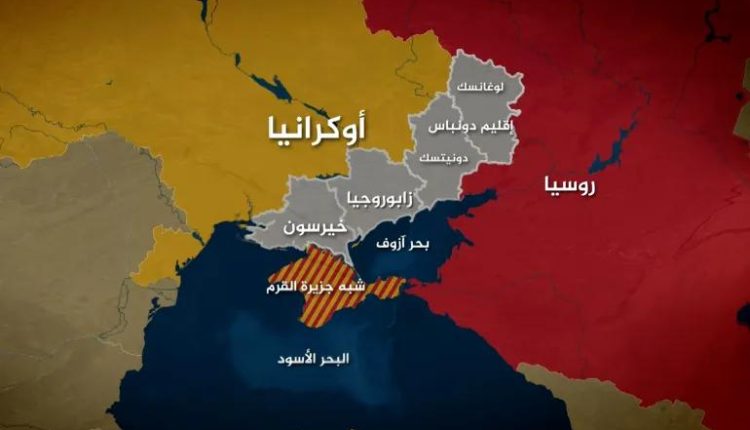THE DEPLOYMENT OF FRENCH TROOPS IN UKRAINE: REASONS AND GOALS

By General Monzer El Ayoubi

Translation: Dr Pierre A. Sarkis
On November 2020, French President Emmanuel Macron proposed to the European Union member countries the idea of establishing a unified European army with a special ideology, independent from the United States, with the aim of defending the Union in any existing and future military confrontation that may be imposed on it, especially from China, Russia, and even the United States of America, considering Russia’s growing military power the most dangerous. He stated in an interview on Radio Europe 1, “without their real united army, Europeans will not be able to defend themselves in the face of serious threats.”
The proposal was met with consent by some EU Countries, led by Germany, but it did not hold up much as it was buried in its infancy, following the direct response of then-US President Donald Trump when he wrote, “the idea of establishing a European army did not succeed in neither World Wars and The United States was by your side and will remain, and all that is required of you is to pay your dues to NATO.” Then-European Council President Donald Tusk sharply criticized Trump warning of the rise of “authoritarian” powers and their arms race on the border with Europe, and considered that Europe and its security will be the main victims, especially with the repercussions of the US President’s announcement of his intention to withdraw from the Intermediate-Range Disarmament Treaty with Russia. Subsequently, in 2017, the members of the Union except for Britain, Denmark and Malta agreed to form the “Permanent European Defense Mechanism” under the title of “European Union for Security and Defense”, in what was considered at the time as a prelude to the establishment of an independent European army- an upgraded version of the Nordic Defense Cooperation, also known as NORDEFCO.
In context, and against the background of what he previously raised in terms of the establishment of the European Joint Force, as well as, the developments in the Russian-Ukrainian war and the indicators of the collapse of the Ukrainian army, the statements of French President Macron provoked wide reactions at the European level and in the French political arena, rejecting in most of them his renewed proposal without “equivocation” in terms of the possibility of sending French and Western forces to fight on the ground. While the White House confirmed through National Security Advisor, Jake Sullivan, that “the United States remains adamant in its position not to send its troops to Ukraine”, NATO also ruled it out; Macron announced new steps to support Ukraine in its battle, saying “it is not excluded to send Western ground forces to achieve Europe’s goal of defeating Moscow”, adding “we are convinced that Russia’s defeat is necessary for security and stability in Europe.” The Russian Presidency considered this an important new element in the conflict. Kremlin spokesman Dmitry Peskov warned that any French or Atlantic move towards the deployment of Western forces in the Ukrainian field “will not be in the interest of Europe and the West in general.”
In parallel, it seems that the Russian Intelligence Service, contrary to all statements indicating that a group of ISIS-Khorasan launched the terrorist attack that took place in the center of Crocus City Mall near the capital, is pointing the finger of accusation, according to data, including the attempt by the perpetrators to flee towards Ukrainian territory, to Western and French Intelligence behind the ISIS group, hypothetically. The question that arises today is whether there is an end soon to the military operation launched by the Russian army on Ukraine. It is clear that NATO’s intervention and Western support for Ukraine will not stop, and that it has entered the rationing stage which indicates at least the enormous material and logistical military burden borne by the United States in its largest part. But does the realistic vision now indicate entering the stage of conflict management? The Kremlin’s geopolitical strategic reading can be summed up in a statement by Russian President Vladimir Putin, “in the event of a large-scale conflict between Russia and NATO, the world will be one step away from World War III.”
Finally, it seems that the political vision based on the data of the French External Security Service indicates that the end of the Russian military operation may or may not rule out the possibility of dividing Ukraine. Here lies President Macron’s statement to deploy French intervention forces as part of a strategy of seizing a share of Ukrainian cheese mold pieces, despite the American reservation, especially after Russian forces consolidated their positions in the five restored regions of Lugansk, Donetsk, Zaporizhia, Kherson and Crimea, and the announcement of its annexation to the Russian Federation after the local elections within the constituency of the positive referendum.
Beirut, 10/04/2024
*Scholar in Security and Strategic Affairs

